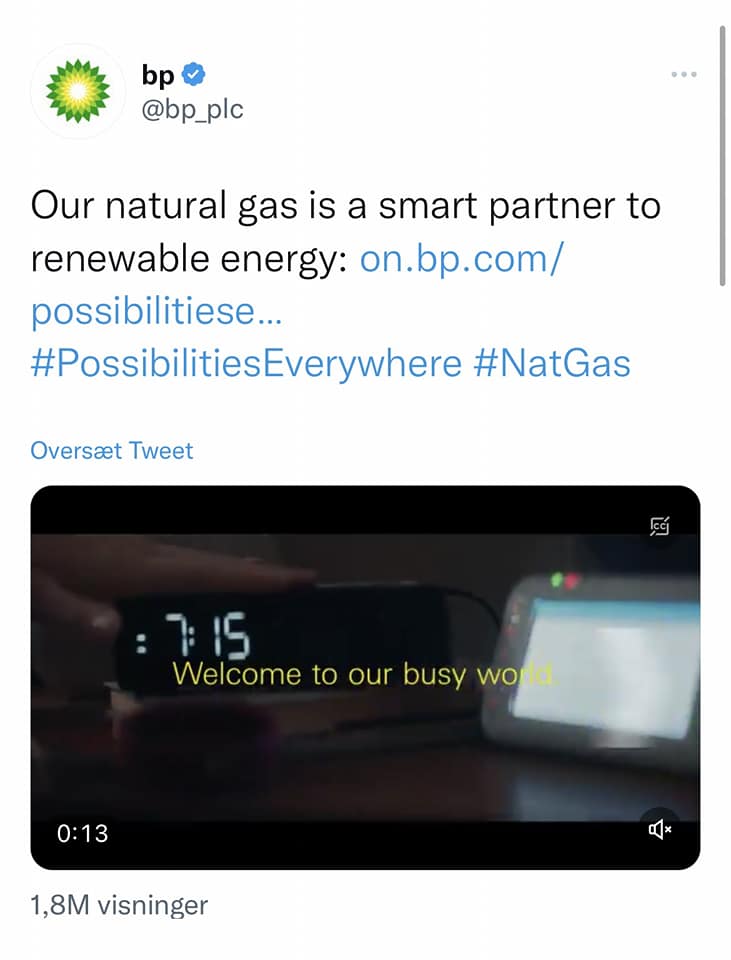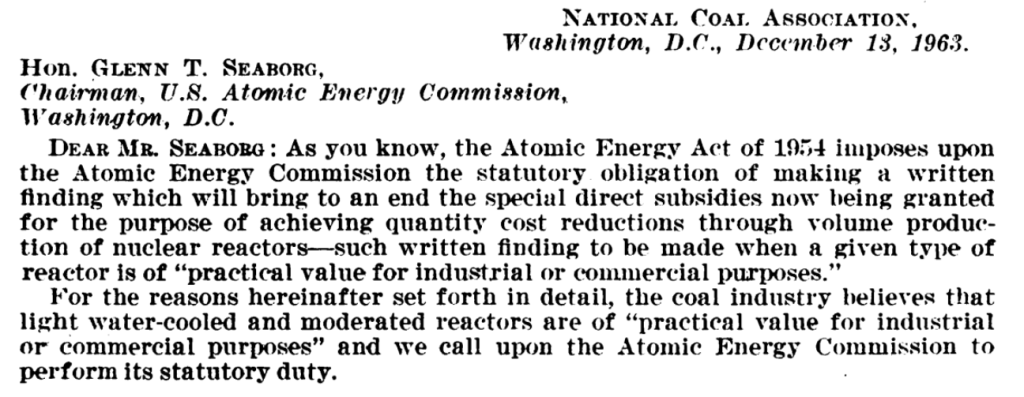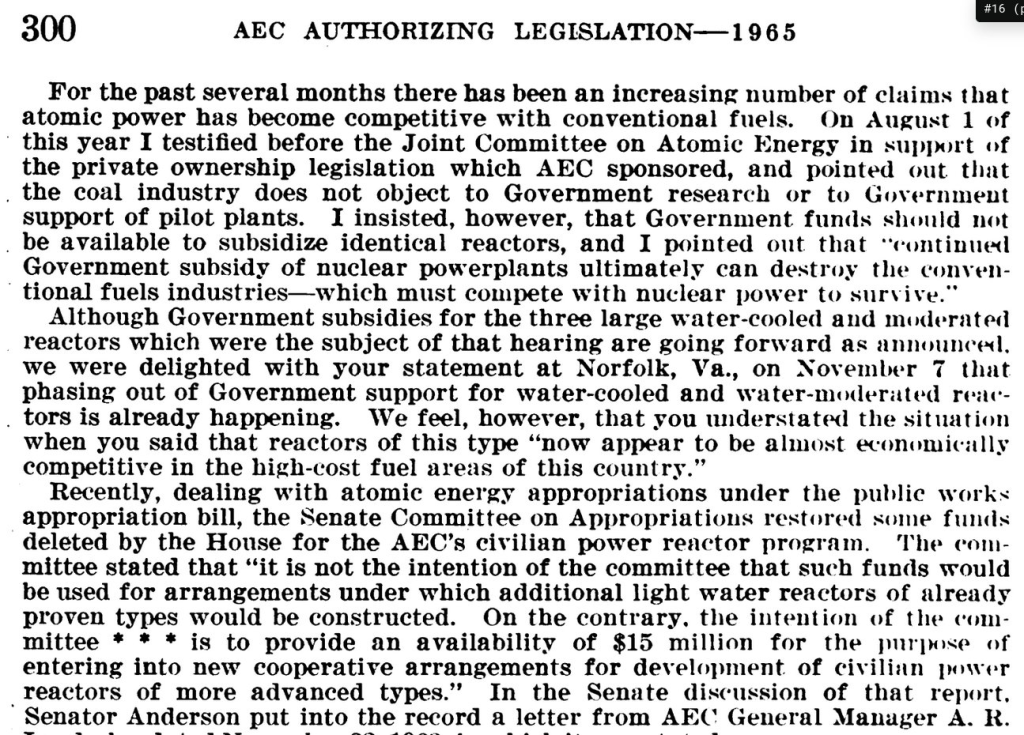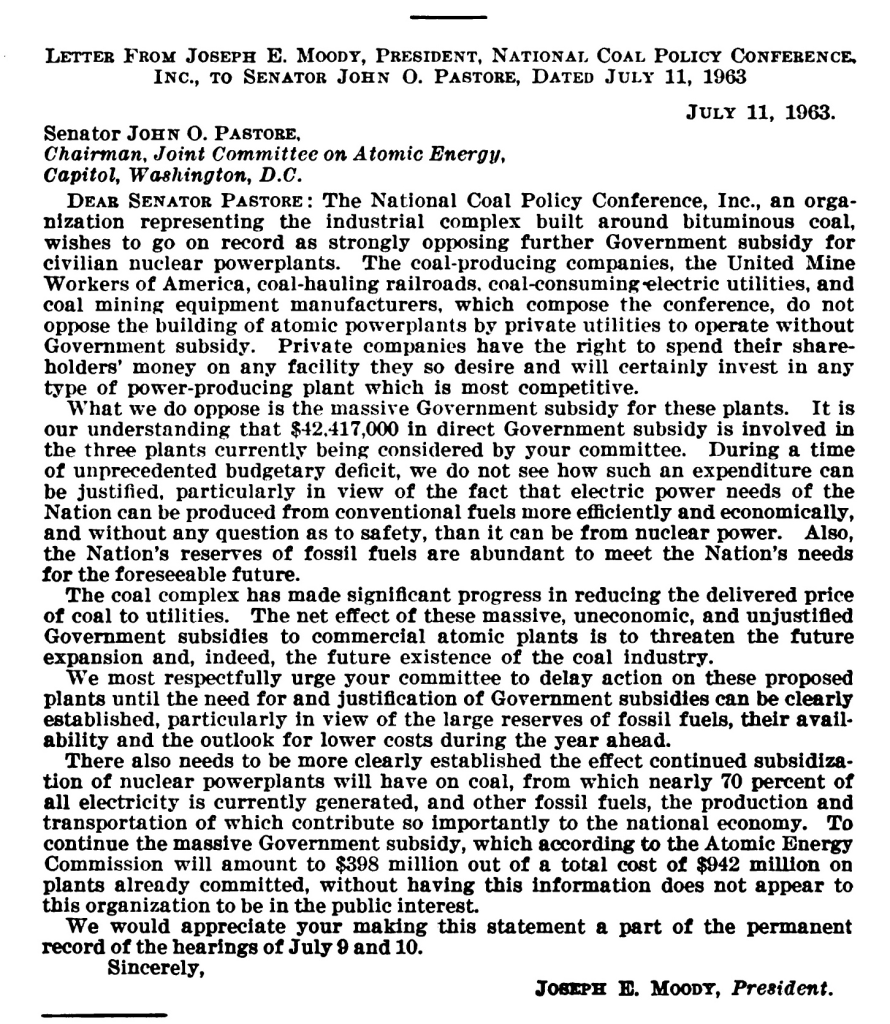Introduction #
The true cost of not building and keeping nuclear energy is more fossil fuels, and of course, the industry knows that which is why they have done everything possible to keep nuclear power down for as long as nuclear energy has existed.
Already back in 1930, the energy suppliers were warned about their business was going to be disrupted by atomic energy during a a keynote address by Sir Arthur Eddington on World Power Conference to a crowd, representing the world’s largest fuel suppliers and customers.
By Sir Arthur Eddington 1930.
subatomic energy would provide the plain diet for engines previously pampered with delicacies like coal and oil.
The fossil fuel industry already starting from the 1950s to engaging in campaigns against the nuclear industry and supported green anti-nuclear groups to protest against it. And had advertising campaigns portraying fossil gas as a “perfect partner for renewables”.
Support anti-nuclear movements #
The fossil fuel industry had long supported and fundraised anti-nuclear environmental groups as frontmen to go as proxies after and spreading false information about the public risks of nuclear energy [1].
In 1969, Atlantic Richfield gave a founding donation of $80,000, equivalent to $500,000 in 2019, dollars to create the environmental organization Friends of the Earth with clear anti-nuclear stances [2]. Anti-nuclear green NGO’s like the Sierra Club, Environmental Defense Fund and Natural Resources Defense Council are receiving grants from other fossil fuel companies [3, 4, 5, 6].
As of 2011, a strategy paper released by Greenpeace titled “Battle of Grids” proposed gradual replacement of nuclear power by fossil gas plants which would provide “flexible backup for wind and solar power” [7].
Promote fossil fuel backed renewable energy #
Oil and gas companies like the idea of solar and wind without nuclear energy because this keeps the use of fossil fuels going. Today, wind and solar are supported 1:1 by oil and gas-based generators to fill the gaps when it’s not windy or windy, keeping the oil and gas industry in demand. In 26 OECD countries, natural gas is the main balance/backup for renewable energy [8]. A strategy of promoting renewables as a way to greenwash the killing of nuclear plants and the expanded use of fossil fuels.
Large fossil fuel companies as Shell and Statoil started advertising campaigns portraying fossil gas as a “perfect partner for renewables” as bellow.



Campaigns #

An anti-nuclear article at CNN sponsored by oil and gas company BP
American Petroleum Institute – Citizens Against Nuclear Bailouts #

In 2017, mysterious local climate action groups called Citizens Against Nuclear Bailouts emerged across 16 states. They strongly targeted a micro-identified group of Americans with direct leaflets, phone calls, and Facebook ads, urging them to support the closure of nuclear power plants.
But in fact, they were not groups of concerned citizens at all. The campaign was actually created and led by the American Petroleum Institute, the lobbying firm for oil and natural gas companies [9].
As part of the reporting called “Pay Dirt,” The Daily Beasts Lachlan Markay published some exclusive studies titled “Inside the Gas Industry’s Plan to Sink Nuclear Power,” about corporate front groups that emerged to fight politically over proposals from a number of states to support nuclear power plants struggling in the wake of cheap natural gas [10].
Markay delved deep into the American Petroleum Institute’s organization of opposition to Bill 11, Pennsylvania’s proposed legislation to avert financial ruin for Pennsylvania’s nuclear power plants through an initiative called No Nuclear Bailouts, and was to access the API’s Power Point Plan, which describes a range of activities, including “grassroots” activism, legislatures’ “wiretaps, and the involvement of third-party groups, and “key influencers” in their attempts to influence politicians [11].
National Coal Association #
The coal industry, never very skilled at public relations, invested resources throughout the 1960s in a lobby group called the National Coal Policy Council (NCPC). That group, an uneasy alignment that included coal mining companies, coal miner unions, railroad companies, coal mine equipment companies and coal burning utility companies, directly challenged the federal government’s programs designed to make the peaceful atom an economically viable competitor.
By 1970, perhaps partly as a result of acquisitions of coal companies by the more PR savvy oil and gas industry, investments in the NCPC fell off. The organization was disbanded in 1971.
In 1963, the President of the National Coal Association asked for federal subsidy of light water reactors to be removed and only, leaving subsidies just for advanced reactors, and also wanted an end to taxpayer funded insurance or waste management [12].


A 1963 letter from from Joseph E. Moody – then president of National Coal Policy conferance saying quite clearly that continued investment in commercial nuclear power risked destroying the coal industry [13].

Sources #
- Are Fossil Fuel Interests Bankrolling The Anti-Nuclear Energy Movement? (forbes.com)
- How important has oil money been to antinuclear movement? – Atomic Insights
- The War on Nuclear — Environmental Progress
- Sierra Club — Environmental Progress
- Environmental Defense Fund (EDF) — Environmental Progress
- NRDC — Environmental Progress
- Bridging the gap: Do fast-reacting fossil technologies facilitate renewable energy diffusion? – ScienceDirect
- https://www.nirs.org/wp-content/uploads/alternatives/battleofthegrids.pdf
- https://www.theatlantic.com/science/archive/2020/02/oil-industry-fighting-climate-policy-states/606640/
- http://climatecoalition.org/wp-content/uploads/Inside-the-Gas-Industrys-Plan-t-o-Sink-Nuclear-Power-04-11-19.pdf
- http://climatecoalition.org/wp-content/uploads/API-Presentation.pdf
- #15 – AEC authorizing legislation, fiscal year 1965 … pt.2. – Full View | HathiTrust Digital Library
- #222 – Cooperative Power Reactor Demonstration Program, 1963 : hearings … – Full View | HathiTrust Digital Library




